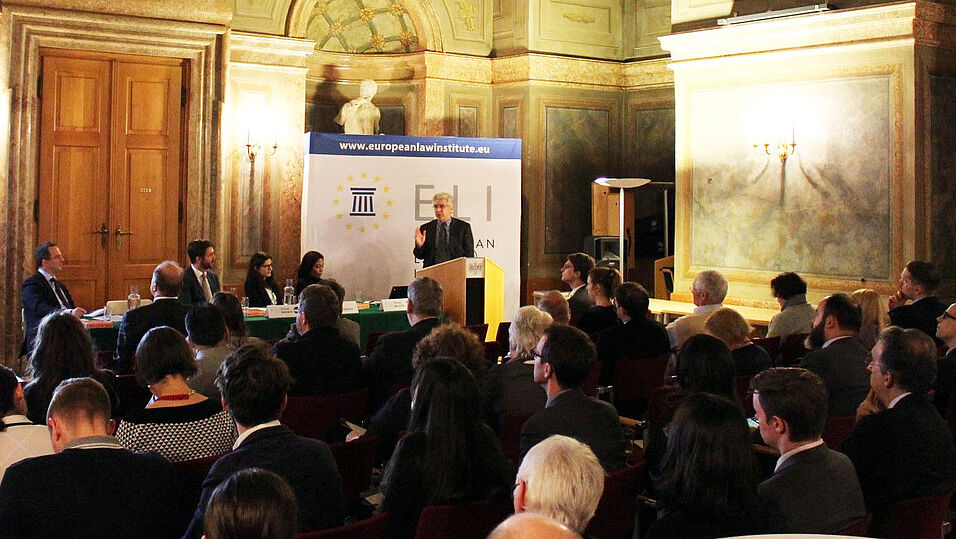Over 50 participants gathered to discuss one of the most pertaining issues in the field of insolvency proceedings, namely the way to handle the insolvency of an integrated corporate group. This was one of several recommendations in the ELI’s Rescue of Business in Insolvency Law Instrument and could be done by a substantive consolidation of all the estates of group companies in order to create one common estate. However, the European Insolvency Regulation explicitly prohibits such an approach on a cross-border level.
After the welcome address by the ELI Secretary General, Dr Vanessa Wilcox, the presentations followed. The starting point of the discussion was the ELI Instrument on Rescue of Business in Insolvency Law, elaborated by Bob Wessels and Stephan Madaus, and approved last year by the ELI Council and the General Assembly, which recommends consolidation on the national level, but not on the cross-border level. Prominent experts, including Stephan Madaus (Martin Luther University of Halle-Wittenberg, Germany, the Co-Reporter of the ELI Instrument), Florian Bruder (DLA Piper, Germany), Edward Janger (Brooklyn Law School, USA) and Irit Mevorach (University of Nottingham, UK) analysed the issue from various perspectives, includingfrom the perspective of the European Insolvency Regulation, of the UNCITRAL Legislative Guide, and of the case law of the USA. Mevorach congratulated the ELI for the choice of topic, which she considered timely.
The presentations were followed by a lively discussion, during which the participants exchanged views on the advantages and disadvantages of each of the presented approaches. It was agreed that substantive consolidation is not a one size fits all approach and that its use depends on the specific circumstances of each insolvent entity. An evening reception followed suit.
The ELI Instrument on the Rescue of Business in Insolvency Law as well as the background materials leading to it will be published with Oxford University Press in May 2019. For a summary of the Project and its background, please click here.

